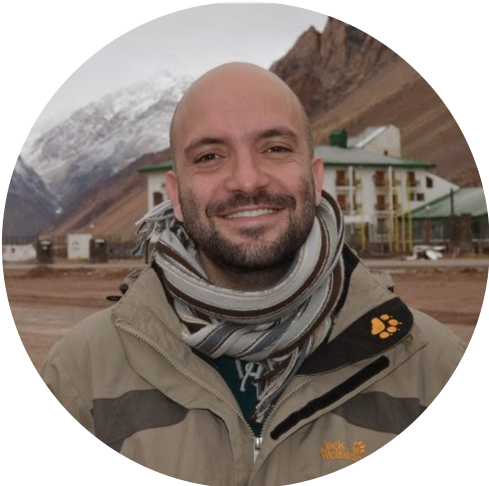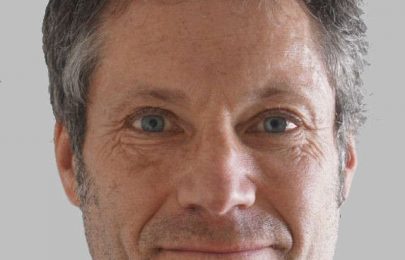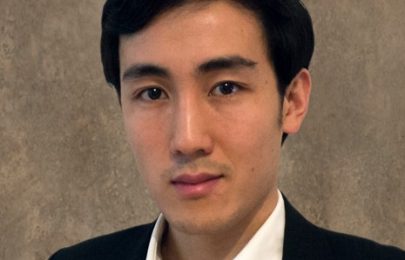Welcome Professor Wang!

We give a warm welcome to our new Guest Professor at the AI4EO Future Lab, Dr. Dario Augusto Borges Oliveira.
Guest Professor Dr. Dario Augusto Borges Oliveira received his M.Sc. and PhD from the Pontifical Catholic University of Rio de Janeiro, Brazil. He then joined the University of Sao Paulo, Brazil, and the University of Wisconsin, USA, as a postdoctoral fellow, and worked in industry at thee General Electric Global Research Center in Rio de Janeiro and the IBM Research lab in São Paulo, Brazil.
Here is a small interview about his experience and plans for the AI4EO lab:
Could you please tell us about your current research topics and interests? Can you explain briefly what they are about?
My current research agenda focuses on developing machine learning methods for Earth Observation topics with scarce to no label available. In practical terms, I am interested in developing machine learning methods to cope with the highly heterogeneous and massively unlabeled data often observed in EO. The methodological topics involve, among others, deep clustering, learning from proportions, synthesis control, spatiotemporal downscaling, and learning with physical constraints. In an applied sense, my interests are related to several topics in sustainability, with a particular focus on deforestation and forest rehabilitation, digital agriculture, and climate change.
What is unsupervised learning and what is the most challenging part of it?
That is a complex question, considering unsupervised learning has a rather polemic taxonomy. Most state-of-the-art machine learning methods that disregard manual annotation are actually supervised but implement an automatic schema for labeling samples. We observed an immense community effort to push the boundaries of methods that disregard massively annotated training sets during the last years. Many subfields arose in that context, like self-supervised learning, weakly supervised learning, efficient data representation learning, among others, each focusing on different ways of alleviating the manual labeling burden. One of the challenging parts of learning from EO data with scarce to none available labels is that EO data can be very heterogeneous, so we need to collaborate closely and efficiently with experts to implement high-quality priors to deliver significant outcomes without massive individual labeling.
Which applied research topic do you like most and why?
I have worked in industrial research for the last seven years, ranging from Medicine to Oil and Gas, but I was primarily concerned about the core research behind those topics. In the last couple of years, I got the chance to work with sustainability, which triggered a consciousness about my research’s tangible impact. Since then, my favorite applied topics approach sustainability, like sustainable practices in agriculture and livestock, forests monitoring, and tackling climate change with machine learning. The great thing about them is that they are very challenging from a theoretical-methodological standpoint, and at the same time, they are very urgent topics for our society. It is a win-win field.
Why is your research important for the future?
I believe any effort to support a more sustainable human presence on Earth is essential. In that regard, those research efforts in sustainability observed in different academic communities, where I hope to add some bricks, will build the technologies needed for adjusting our otherwise worrying future.
Your focus is on the one hand on deep learning, and on the other hand on environment aspects like global warming or agriculture. How do these two issues fit together and how can deep learning help with environmental aspects?
Combining deep learning and environment is a symbiotic arrangement in many ways; on the one hand, deep learning has a vibrant community that provides a robust framework to push boundaries in different areas; on the other hand, many of those models are not yet fully capable of handling efficiently heterogeneous data from such complex systems as those related to the environment. In practical terms, substantial research successfully applies deep learning to different tasks related to the environment, like monitoring deforestation, classifying crops, implementing more robust weather forecasts, and so on. So much has been done, and much more is yet to come.
What are you looking forward to the most about your new job here?
After this seven-year experience in industrial research, I must say I am very excited to return to the academy. I cannot wait to work with students and get involved with my colleagues’ top-notch research.
What is the biggest difference between your home country Brazil and Germany?
I lived in Germany for a while ten years ago, and of course, it was not sufficient to grasp most of the similarities and differences between Brazil and Germany, but I’m very excited about this new chance to learn more about them. From what I saw, we are both respectful and joyful people, but Brazil and Germany are surely different in many ways. Since we are talking about climate, the seasons in Germany are incredibly peculiar, and in my hometown, Rio de Janeiro, we joke about having only variations of summer in the year.
We wish Prof. Borges Oliveira a fruitful stay at AI4EO!


